#theme: immigrant
Text
my personal time-travel fantasy isn't anything special i just want to go back and compare and exchange earrings throughout history and culture with the people who crafted and wore them. maybe pierce each other's ears as a bonding experience before i have to return to the present.
#🐉#my ancestry is very wide ranging since immigration is kind of a major theme in my family#so id love to get to see my ancestors bone and varnished wood and silver earrings#and get roasted for the cheap metal mine are made with#although i bet theyd love the shapes and patterns of my novelty earrings so much
587 notes
·
View notes
Text

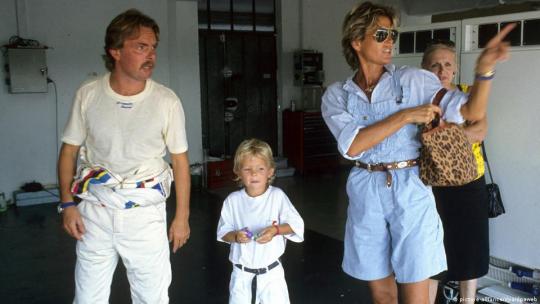


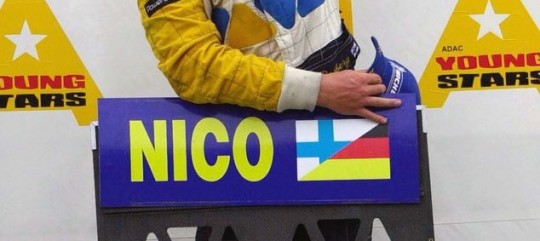

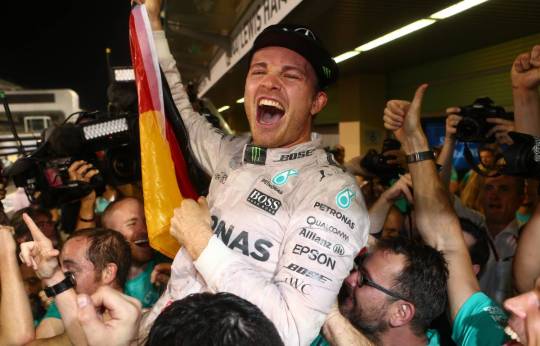

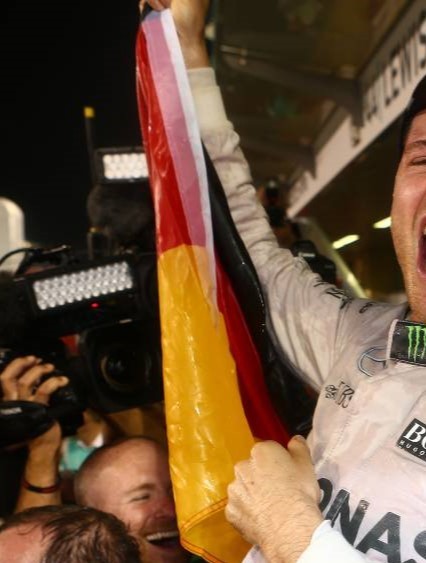

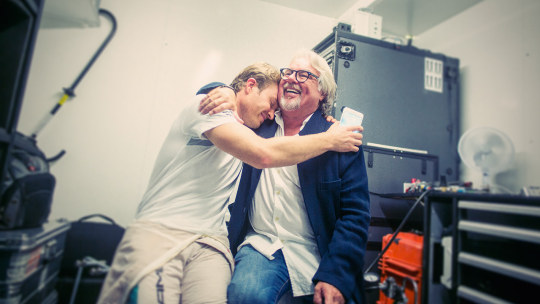


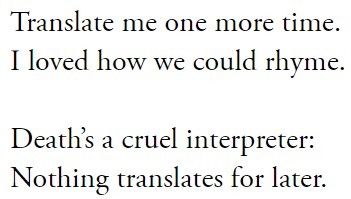

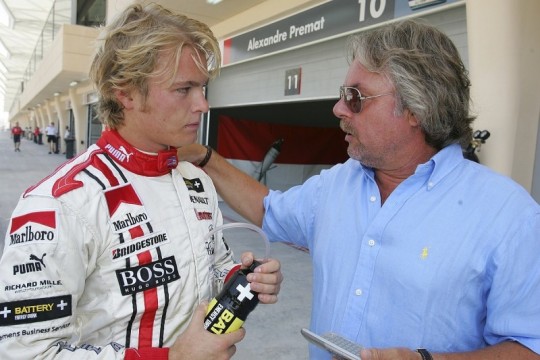


li-young lee / raymond luczak / betsy reed / pete gill / michael dumanis
the generational death of language & saluting a flag
#as a second-generation immigrant myself the loss of parents' culture is something very close to me#this was going to be a nico/kimi web weave#but i got carried away with nico as the focal point#kimi will be in the next similarly themed one#shit i have so much stuff i have to do#wish me luck in actually getting it done everybody 😭😭#web weaving#nico rosberg#keke rosberg#words#poetry#f1#pinned post
391 notes
·
View notes
Text
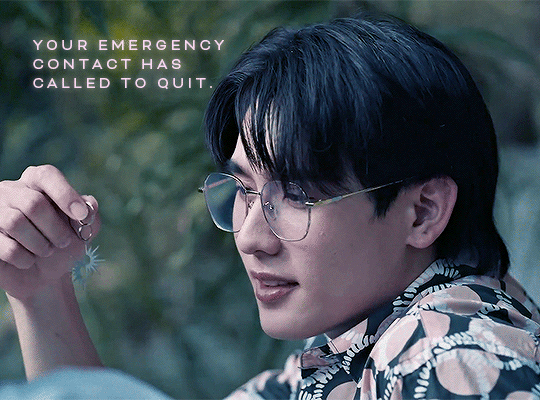
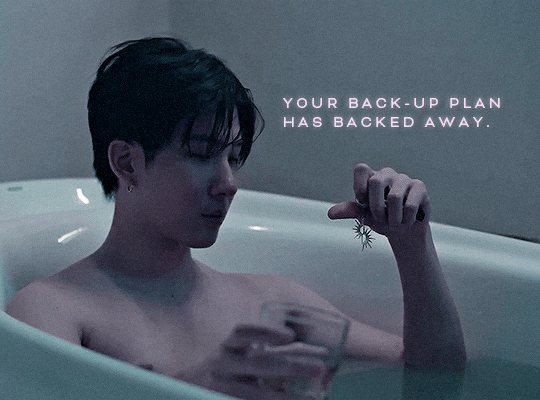
ONLY FRIENDS | EPISODE 4
YOUR EMERGENCY CONTACT HAS EXPERIENCED AN EMERGENCY
by CHEN CHEN (2022)
#made this purely because i started reading Your Emergency Contact yesterday morning while waiting for only friends#and so part of me feels I predicted the episode title#book review so far really enjoying this very honest personal poetry collection about his experience as a queer asian american#and tackling themes of grief and immigration and decolonizing poetry as a field#it is stuck in my head like a song so needed to gif#but anyway really loved this episode and how firmly mew was setting up boundaries#i continue to be fascinated by mew#ofts#onlyfriendsedit#*mine#*mygifs
136 notes
·
View notes
Text
writing new characters for supernatural but british and this story wants so bad to say something about the concept of migration and immigration and the consequences of leaving your home and building a new one. And I don't know what it wants to say about that or why
#I'm not doing this on purpose!!!!!!!#also fun fact I am toying with the idea of Will's family being Travellers who gave up their nomadic lifestyle a generation back or so#it would add a really intresting thematic element to him wandering now#to clarify I have no problem with this theme I'm just like ???? what are you trying to do what is the point you are trying to make about it#in fairness it is in large part my fault because I'm trying to depict accurately british diversity. and because this is a story about#folklore and thus history and roots. it by necessity also talks about immigration.
34 notes
·
View notes
Text
Happy Queer Media Monday!
Today: I Dream In Another Language (2017)
I watched this movie a few weeks ago, and it STUCK.
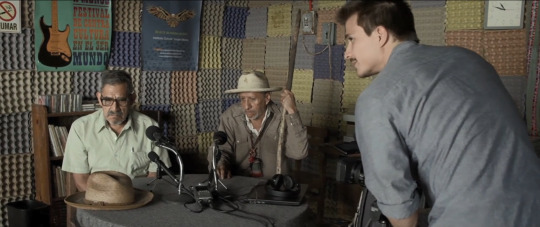
(Don Evaristo and Don Isauro just before their first interview to record Zikril together.)
I Dream in Another Language is a Mexican magic realism movie about the death of a culture. It documents the efforts of a linguist trying to save the (fictional) language Zikril, spoken only by three old indigenous people. When one of them dies, the studies come to a halt, as the other two, Don Evaristo and Don Isauro, have not spoken to each other in over fifty years and categorically refuse to have anything to do with each other. As he looks further into this, the linguist discovers that the real reason for this feud is their past relationship and an awful lot of internalized homophobia.
Zkril is an artificial language, created specially for this movie out of respect for the people who still speak the endangered and disappearing languages today. The fact that it has seemingly magic powers, and that its speakers appear to be living on after their death, clearly puts the story into the magic realism genre.
This is NOT a happy movie. The internalized homophobia part is no joke, and the main theme of course is the loss of a language, and the culture that comes with it.
But it damn sure is leaving an emotional impact.
I strongly suggest that everyone who is even vaguely interested in this subject read up about languages and language conservation. The Wikipedia page of this movie is as a good place to start as any, since there are related articles linked in the references list. I also would like to thank @celluloidrainbow for bringing this film to my attention.
Queer Media Monday is an action I started to talk about some important and/or interesting parts of our queer heritage, that people, especially young people who are only just beginning to discover the wealth of stories out there, should be aware of. Please feel free to join in on the fun and make your own posts about things you personally find important!
#I cannot stress how good this movie is#and how much THE INTERNALIZED HOMOPHOBIA IS NOT A JOKE#but yeah the theme does personally resonate with me#I love languages I love culture and I live in a very multilingual place#also I'm a child of immigrants who is lucky enough to have parents who made sure that we actually stick with our mother language#but I do still feel this certain disconnect to my country of origin#nothing ANYWHERE near as bad as people in colonial countries experience mind you#nut the themes are there somewhere#anyway people take your languages seriously and cherish them and pass them on to future generations#languages are SO IMPORTANT!!#i love languages#I Dream in Another Language#post-colonial cinema#queer movies#queer cinema#movie recommendation#Mexican cinema#international queer cinema#Queer Media Monday
62 notes
·
View notes
Text
I can literally Never sing high enough praises for Superman smashes the klan and it makes me endlessly happy to see other people talk about this fantastic work. It's so brilliant in its writing it pales most superman stories. And the art is so immensely charming and stylized. It's so. Good. I own the book of it and seriously need to read through it again
#it's just so GOOD#it NAILS those immigrant themes and feeling alienated from your peers and society#it's SUCH a good superman story it's absolutely wonderful
31 notes
·
View notes
Text
AGHGFCCV LISTEN.
I have a theory-----
So it always bothered ne how despite there being so many witches in Mitakihara, there only seem to be Mami (and kinda Homura) as magical girls in the city at the start of the show, like surely these witches come from an equivalent amount of magical girls right???
Welll what if- magical girls and witches cone in some sort of "waves" of despair- basically, kind of like highs and lows in stuff like market economics
Heres how i think it might work- Kyubey reveals himself to a girl, and there are 2 options-
1- She is a lonely person and has therefore a higher likelyhood of witching out or dying without a support network, or-
2- She has, to some kind of degree, close friends she can talk to about stuff like being a magical girl.
If option 2 happens, then even if the girl herself is the only one out of her friend group (or out of whoever is eligible in it anyway) who becomes a magical girl, then eventually when she inevitably enters into a dangerous situation, Kyubey will manipulate any eligible friends she has into making a wish for her (which constantly happens in the show)
Then, if a wish wasn't made, a new witch or at least dead magical girl wouldve been created without any friends joining as magical girls
The more likely situation i suspect though, is that a wish DOES get made, and then, when one of the friends gets into a dangerous situation again and none is there to make a wish to save them (which will inevitably happen because being meguca is suffering)-
One of them will die or witch out, starting a chain reaction because well, your friend just died in front of you, probably brutally, or instead went the non gorey (if nothing else) way of becoming a witch- both highlighting the futility of your cause AND making you use energy to defeat a new witch in an already bad for you situation.
Both cases are highly likely to make the entire friend group witch out this way, because of the collective downward spiral.
And again, lonely girls are known to be preyed on because they do not last long.
In short i suspect the show takes place right after these kind of "chain witchification" happened to many magical girls in Mitakihara, which Mami was not affected by because she is a lone veteran (despite her efforts)
Basically, I think Gertrude, H.N. Elly, Elsa Maria, and maybe one of the other less significant witches (not Charlotte tho we know what happened There...) were part of a magical girl squad that fell to despair
Heck, this chain reaction is even shown to happen in alternate tinelines the Quintet was together, Sayaka witches out, Mami breaks down bc of it and kills Kyouko and then dies (to Madoka), and then Madoka becomes a witch, and so too would have Homura if she could not time travel most likely, resulting in net 0 magical girls and only witches for a short amount of time.
Mitakihara could also just actually be really small and all the witches immigrate from Kazumino or something. idk. that would be boring though
#pmmm#puella magi madoka magica#sorry for the repeating wall of text i really got into it#anyway its really sad. magical girls fall together so much we just dont see them sometimes at all. insane#also the implications if this is true on the shows exploitation themes with mgs being subject to market highs and lows like a commodity. ag#i hate that i thought of a way to make the show sadder somehow#sorry mutuals this probably doesnt make sense its late and im tired n stressied#my posts#deltaruins tags#aghhhhh#also reread the last line now im imaginging the wings of magius platforming against witch immigrants using a barrier (wall)#like some magical girl trump#anyway i am become sleepy again. will see notifications on the morrow. good eve
9 notes
·
View notes
Text
yakuza: dead souls - american vibes, bigass guns, and why zombies are super weird to have in ryu ga gotoku thematically/ideologically speaking
so i've been playing dead souls recently (hell yeah hell yeah hell yeah) and although i'm having the time of my life with it, there was something about it that kinda felt off to me, and i think i've figured out what it was, but i'm gonna have to walk you through a bit of my thought process to get there.
my first instinct was that it felt... american? and upon further examination i think that boils down to a couple of things:
everyone suddenly has lots of guns and also way way bigger guns
high emphasis on individual heroism (this itself is quite typical for rgg, but it manifests differently here; more on that in a bit)
military/government incompetence, which must be solved by the right individuals having the biggest and bestest guns
[for the sake of transparency i will note that my experience with zombie media is pretty limited and skews american (and i myself am american), so that may create bias. however, the 'this feels american to me' instinct is a rare one for me even in genres where i have seen little/no non-american media, so i think the fact that it did occur to me is notable. what about dead souls triggered that response when little else has? that's why i examined it and, truthfully, i think there's merit in the idea itself.]
the first point is pretty self-explanatory. america's got more guns than it does people, and its gun worship is infamous. japan's ban on guns (aided by its being an island state) means there's far fewer guns in the country, as well as far fewer people with guns (and likely far fewer guns per gun owner, excepting arms dealers/smugglers) than somewhere without such a ban. obviously, there are guns anyway. due to their illegality they are clustered within the criminal population, which explains their presence within organized crime within the series. very few guns will be sitting around in the homes of otherwise law-abiding citizens.
and yet, when the zombie outbreak hits kamurocho, plenty of civilians suddenly have access to quite an arsenal. everyone has the knowledge they need to aim, fire, and reload smoothly and quickly; ammo is infinite for certain guns. characters we've never seen using firearms before suddenly have shotguns under their couches (looking at you, majima). it's not only very different from reality, it's very different from guns' place within the series up until this point, when they were limited weapons used primarily by the enemy.
and they're making a zombie shooter, so of course they would have to do this. it has to be unrealistic to be simultaneously in this setting and in this genre, in the same way that yakuza solving their problems with bareback fistfights instead of guns is itself both unrealistic and necessary to being the kinds of games rgg are.
my point is that this is a kind of focus on and valorization of gun ownership and competency unusual for the series and setting. further, it serves as an argument for why an armed, competent populace is crucial typical in american media.
which brings us to the third point (we'll get to 2 in a minute). guns are often marketed as self-defense weapons. the implication is that the government's defense of the individual (via law enforcement or the military, but particularly the former), are insufficient. this is objectively true. if someone pulls a gun on you at the gas station, will a cop manifest out of thin air to intercede? no. that's impossible. but if you have a gun, or if some bystander has a gun, you or they may be able to do something with that gun to stop the armed person. thus, there is an undeniable gap in the effective immediacy of such responses.
many gun advocates also point to the incompetence or insufficiency of law enforcement, even when they are present to stop an armed aggressor. the fact that law enforcement do not have a 100% success rate in protecting the citizenry is also objectively true.
so, when you are in danger, arming yourself increases your chances of being able to put down (or at least take armed action against) a present or potential threat. whether it is viewed it as a supplement to or a replacement for law enforcement, it is meant to make up for the shortcomings of the government's ability to completely protect all its citizens. it's a safety net for state failure.
back to dead souls. rgg has always centered political corruption in its stories, including politicians, the police, and sometimes even the military, though usually the former two. sometimes this is treated sympathetically (i.e. tanimura, a dirty cop, whose dirty-cop-ness allows him to work outside/against the law to help disadvantaged people, not unlike how kiryu views being a yakuza), and other times it's simply a matter of greed or lust for power (i.e. jingu).
however, something that's almost never touched on so clearly is government incompetence. when the government fails to help people or hurts them or does corrupt things, it's usually due to a competent, malicious bad apple who is removed from power by the end of the game. this implies holes in the system because it keeps happening all the time, but that's on a series-wide scale, a pattern ignored by the series in favor of the individual game solution of "this guy's gone now :) yay".
but in dead souls, the SDF's barracades fall, their men are killed, they are unable to help protect the people outside or inside the quarantine zone. they are weak in a way the government usually isn't in these games. and who is stronger than them? our individual good guys with guns. so we need to be armed because the government is weak and can't protect us. boom. america.
returning to point 2, i'd like to say that dead souls is not particularly more individualistic than any of the other games in the series (other than, perhaps, y7). rgg is an incredibly individualistic series, actually. its protagonists are usually men who defy, oppose, and skirt around the law as a way of helping others and doing what is truly right (with a few exceptions, like shinada and haruka). the romanticized view of the yakuza as a force for helping the community in the face of government incompetence is a real one, and one that tends to manifest itself most in kiryu and how the series treats him. it shows us yakuza who aren't willing to kill, yakuza who cry about honor and justice and humanity and brotherhood, yakuza who never dip their hands into less palatable crimes, or only do with intense regret (and only ever as part of their backstory). the beat-em-up style emphasizes this as well. i mean, what's more individualistic than a one-man army?
put more clearly, this series is about men defying legal and social laws and expectations to live in a way that feels right to them, and about making themselves strong enough to combat those who would get in their way. the individual is placed before the society in importance, (though generally in a way that benefits the community, because they are good guys who want to use that agency and power for good).
all of this is true in dead souls as well, technically. those who live on the outskirts of society are the ones who actually save the day, and the ones who go in there and save people rather than just walling them off and pretending like they don't exist. they have the guns, which are illegal and mark them as criminals, but this broken law is what gives them the power to save themselves when the government will not, and to save their community if they so choose.
where dead souls differs is in the nature of that strength.
rgg places a lot of emphasis on self-improvement, both of one's body and of one's character. do both of these, and you will be strong enough to back up your ambitions. what allows someone to carve their own path in life is the ability to put down ideological and physical resistance by having resolve and the ability to tiger drop whoever won't be swayed by your impassioned speeches. you make yourself a weapon. you make yourself strong. in dead souls, that strength comes from an external, material possession. strength is something you buy (or that you take from someone else). who is able to survive the apocalypse comes not from the heart, nor from rigorous training, but from who has the most, the biggest, and the most bestest guns. it's an intersection of capitalism, militarization, and individualism. simply, deeply american.
[when i was talking myself through this a few days ago, i spent a lot more time on the capitalism + individualism stuff, but i think i'll keep this moving. consider this aside the intermission]
dead souls also differs for a few other interlocking reasons. it can be described with this equation:
zombification of enemies + lethality of guns = loss of emphasis on redemption
if your best friend turned into a zombie, could you shoot them? or your child? or your lover? it's a common trope, but it's a damn good one. watching your family, your neighbors, your town, everyone turn into a husk of themselves, something that looks like them but cannot be reached, is deeply tragic. it's even more tragic when these husks are trying to kill you. unable to be reasoned with and unable to be cured, you must incapacitate them before someone innocent is hurt--or hurt, then themselves made dangerous; each loss adds to the number of threats surrounding you. your life is seen as more valuable than that of your zombified friend, not only because the zombie is attacking you and it's self defense, but because they are no longer a person to you. to be a zombie is to no longer be human; zombification is dehumanization.
and so in a series so focused on connection with one's community, on saving innocent civilians, often on saving kamurocho specifically, one would expect similar tropes to occur. even if one's friends aren't turned, perhaps the cashier at poppo you chat with sometimes is. it's the destruction of that community and of the members one has tertiary relationships with that i expect would occur most within a kamurocho zombie story, since they are likely unwilling to axe anyone more important than that, even if dead souls isn't canon. i'd especially expect to see that in the beginning, before the need to kill zombies rather than contain or redeem them becomes apparent.
this does not happen.
i cannot speak for the entire game, but i can speak of gameplay choices that affect this, and ones i think will not be subverted throughout, even if they are somewhat contradicted by plot events i am presently unaware of.
kamurocho is not a community to protect, nor is it filled with your fellows. it is a playground filled with infinitely respawning, infinitely mow-downable, infinitely disposable zombies. you are meant and encouraged to kill them by the thousands, and never to hesitate or consider whether they may be cured or who may be mourning them. who may be unable to identify their loved one because you were trying to reach a headshot goal from hasegawa. you are not meant to consider them as human, nor beings that were once human, nor beings that could be human again, in the eyes of the zombie shooter. they are merely bodies, targets, and obstacles.
the zombies are contrasted with the true humans, those barricading themselves within the quarantine zone or those living in ignorance outside it. humans are meant to be saved, zombies are meant to be killed. the player character is the only one who can truly help with either of these goals, because the other humans are cowardly, ignorant, or unarmed/helpless. you must be their savior. to be a savior is to eliminate zombies, who are less than human.
the black and white nature of this is also emphasized by another gameplay characteristic: the lack of street encounters. when you traverse the peaceful parts of kamurocho, you are never attacked. you are also never directly attacked by the humans within the quarantine zone. kamurocho feels very different without its muggers and hooligans, but it's because this is a zombie shooter, not a beat-em-up. in a normal rgg title, you'd subdue threats by punching, kicking, and throwing them. you'd use your body in (supposedly) nonlethal ways. dead souls does not have a combat system meant for civilians. you have your guns. you subdue threats by shooting them, preferably lethally. the game doesn't want you to do that to humans, so you never fight humans. this furthers the black and white divide between the salvation-worthy, noble humans and the death-worthy, worthless zombies. combat is only lethal, and only used against the inherent other.
this leads me to the part of dead souls i find most conflicting with the ethos of rgg broadly, and perhaps its greatest ideological/thematic failing.
because the enemy are incurable, dangerous, and inhuman, you must kill them to protect yourself and others, others who are still human. humanity is something that is lost or preserved, but never regained. once someone's gone, they're gone, and you not only must kill them, it is your duty and your right to kill them. you should kill them.
in dead souls, there is no redeeming the enemy.
and that's a big problem.
rgg is about a lot of things, but a key one is the ability of people to change for the better. its most memorable, beloved villains are those who see the light by the end and change their wicked ways (usually through some form of redemptive suicide, though that's another essay in itself). its pantheon of characters is full of those who come from questionable backgrounds struggling to be the best people they can be, to live as themselves authentically and compassionately. it's about the good and the love you can find in the moral and legal gray zones of life/society, and the potential/capacity for good all of us have, no matter how far we may have fallen. it is a hopeful series. it is a merciful series.
this is something bolstered by its gameplay. countless substories are resolved by punching a lesson into someone until they improve their behavior, either out of fear or genuine remorse/development. the games don't just discourage killing your enemies, they don't allow you to (yes, we've all seen the "kiryu hasn't killed anybody? umm. look at this heat action" stuff before, and while they've got a point, i believe it's the narrative's intent that none of this is actually lethal, based on how laxly it treats certain plot injuries (cough cough. y7 bartender) and the actual concept of taking a life, the gravity it is given by the text, particularly when it comes to characters crossing that threshold into someone who has killed. explicit killing is not an option open to you, even when you're being attacked by dozens and dozens of armed men. conflicts are resolved by simply beating up enough guys in this nonlethal manner.
but dead souls is a shooter. to avoid conflict with the series' moral qualms about letting its characters kill, the enemies cannot be human. furthermore, the zombie shooter genre can only fit within the series if its zombies are completely inhuman. this means their pasts as humans cannot be acknowledged, nor the possibility of a cure, nor the characters' own potential conflicts about killing them; or, at least, not in a way that impedes their or the player's ability to gun them down afterwards.
if you can't kill humans in your series, then it cannot be possible to save (in this case, rehumanize) zombies. this is especially true in a game where you are unable to fight humans, and thus human lives are universally more valuable than zombie lives. because if you kill a zombie that can be cured, you are, in a way, killing a human.
and so, in a series where you should always assume your enemies (and everyone, for that matter) are capable of reason, compassion, change, and redemption, and where they are always worth that effort, even if they reject it in the end, dead souls' enemies are irredeemable and only worth swift, stylish slaughter. there are only good guys and bad guys. good guys must be protected, lest they be turned irreversibly into bad guys. good guys are only protected by killing bad guys, and the only way to save good guys is to kill every last one of the bad guys. do not spare them, and do not ask whether or not it's right. only kill.
i love dead souls. it's a silly game. i like seeing daigo in decoy-drag and majima gleefully cartwheeling his way through zombies and ryuji with his giant gun arm prosthetic. it's fun. but when i was trying to figure out what felt off about it to me, one of the words that came to mind (besides american) was indulgent. that, too, felt odd, because i love indulgent media. i am not one to scorn decadent, hedonistic, beautiful high-calorie slop type media. if dead souls was just fan servicey, that wouldn't really bother me. i am a fan and boy do i feel serviced. it rocks. but i think my problem is in what dead souls is indulging.
i think dead souls indulges in the desire to cut loose, and to see these characters cut loose. thing is, they're cutting loose all over kamurocho, and all over the bodies of people they used to (at least in concept) care for. with lethal weapons. it is catharsis via bloodbath, not by pushing your body and mind to the limit in man to man combat, but by pulling a trigger before the other guy can hurt you, or even think about hurting you, for the crime of existing as the wrong kind of thing.
and i just don't think that's in line with rgg's beliefs.
yes, it's probably fair for dead souls' characters to kill zombies. i'm not against that. i'm also not against games letting you do purposeless violence. i spent a good amount of my elementary school years killing oblivion npcs for shits, like. that's not what bothers me about dead souls.
rgg as a series has always taken a hard stance in both its game design and narrative choices against killing and for the potential for redemption in its enemies. and i think the lengths to which it goes to promote that despite the probably-lethal moves you do and the improbability of a harmless do-gooder yakuza is one of the most endearing things about the games. so for this one entry to disregard that key theme for the sake of a genre shift that flopped super hard, well? i dunno. it feels weird i guess. it's out of place not just because it's a dramatic shift in gameplay and style and also zombies are only a thing here (and the supernatural/fantastical are thus only prominent here), but because of what those shifts imply.
so, uh. yeah. my pre-dead-souls thoughts that dead souls wasn't that out of pocket bc rgg's just kinda weird? turns out it was actually super weird to have a zombie shooter in there, but for way way deeper reasons than anyone gives it credit for.
(footnotes in tags)
#1) i deemphasized the physicality of shooting to emphasize my points about the viscerality and personal nature of rgg#brawls and the colder more detached nature of gun use relative to that but i do NOT mean that shooting has no physical component to it#obviously it takes a lot of skill to shoot quickly and accurately and lugging a bigass gun around kamurocho would tucker me out for sure#2) no i don't think all those things i said were american were usa-exclusive. it's a big world out there. i'm just saying those things#combined feel like a particularly american flavor of thing to me#3) there's probably more to be said about the connection between wanton killing and american styling or anti-immigration theming in zombie#stories or dead souls But i figured that was a bit too disconnected to the funny zombie game. this shit was a lot anyway y'know?#4) also i don't think most of this was intentional on the part of rgg studios. i genuinely think they just wanted to make a fun zombie#shooter and didnt really think about it all that hard. whenever you make smth there's gonna be implications you never considered. it happen#5) is it ballsy to write a giant essay on a game i'm like 1/4 the way through? yes. i've done smarter things. i'll revisit it when im done#if i'm wrong then i'll figure it out probably. but like. i don't think they'd set up the hasegawa objective stuff or have akiyama just#unflinchingly start shooting zombies and then later challenge that. we'll see but my hopes aren't high y'know? i know rgg#6) i should also clarify that violent catharsis is a) a part of all rgg games and b) cool as hell. it's the lethal bit that doesn't fit with#the series y'know?#rgg#ryu ga gotoku#yakuza#like a dragon#yakuza dead souls#dead souls#classic skrunk 4 hr middle of the night impulse essay hooorayy
15 notes
·
View notes
Text
2am: fandom shipper brain is detrimental to storytelling and approaching art and media with that mindset perpetuates a manufactured, consumerist, and unattainable idealistic mindset to the very personal and varied ideas of narrative fiction and interpersonal romance
2pm: listening to my bandana dee x king dedede playlist on the bus to the doctor's office ✌️👍💙🧡
#succ speaks#mostly because kirby is a baby game#yes it has crazy ass themes regarding religion however 8 year olds playing star allies aren't pausing for lore in spicy mode#when we start talking about things like the half of it that's where i draw the line#because people whined that it wasn't 'gay enough' because grown adults cared more about another teenage romance but gay this time#than they did about exploring the feeling of being a perpetual outsider as a kid and having to save multiple faces at once#which methinks is the sort of thing people mean when they criticise fandom for being 'too white' or 'obsessed with the surface level'#because most of the themes that go ignored in favor of 'shipping culture' are related to class race gender religion ability and immigration#but idc if someone cares more about marxolor than the insane intentional christian themes in magolor's 2011 betrayal and 2023 redemption#because kirby is a baby game and the themes of religion and redemption aren't meant for audiences to consider and reflect personally on#they're meant for the huge fucking nerd fans that hal knows love to analyze lore crumbs in the pink circle nintendo game 👍
8 notes
·
View notes
Photo
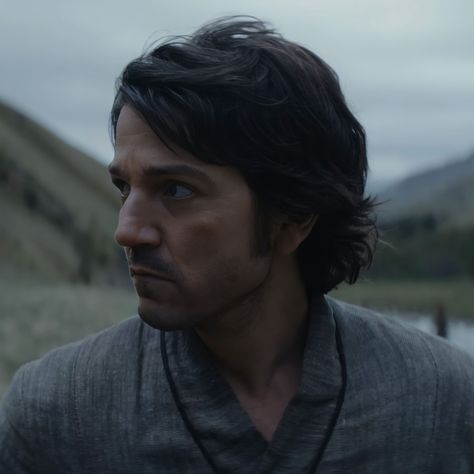
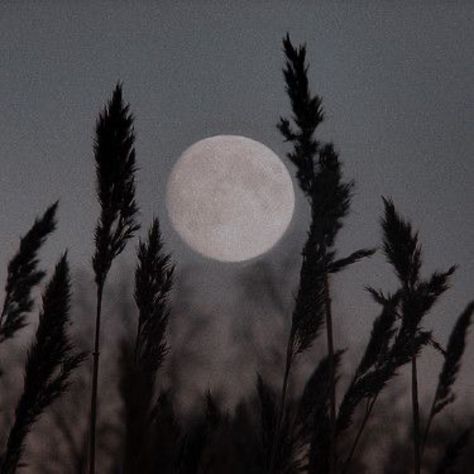
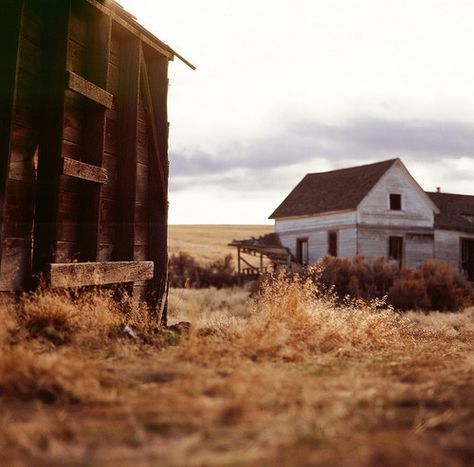

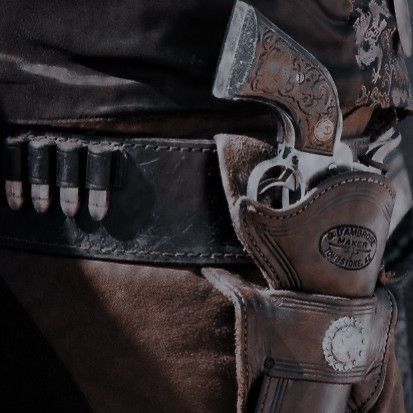
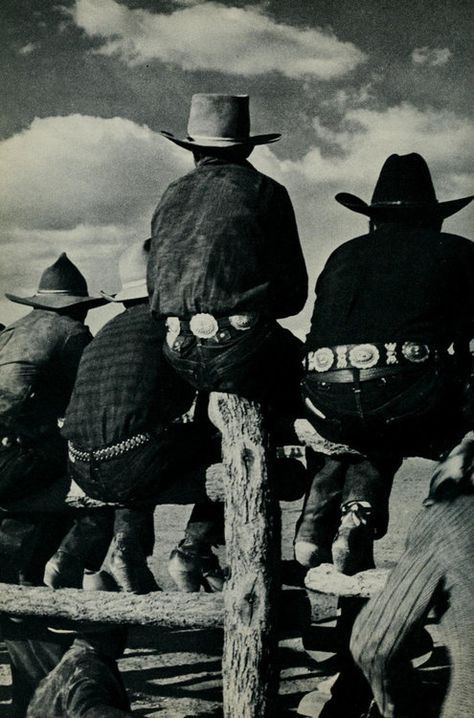
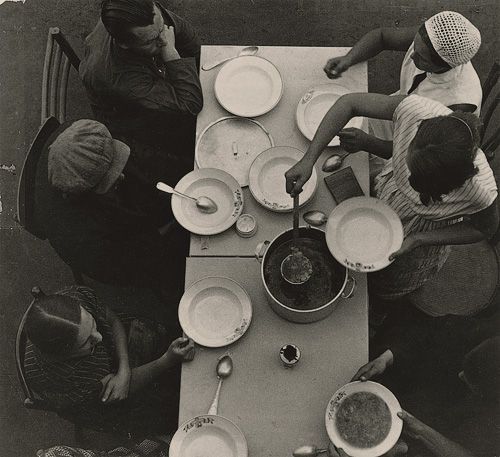
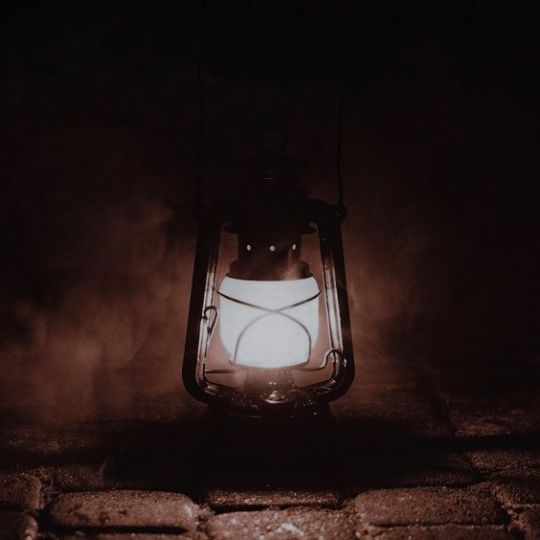

1930′s au. Placed into deep cover as a married couple by rival revolutionary cells, agitators Cassian Andor and Jyn Erso use their central Texas farmhouse as a waystation for the rebellion, running messages, sheltering fugitives, and employing their particular pasts to secure funding. Yet trouble brews that may shake the duo from their carefully constructed veneer of normalcy, not least Cassian’s increasing interest in stepping out from the shadows to recruit local work manager Kino Loy into the rebellion itself.
heavily inspired by damnation (2016) and fx’s the americans
#rebelcaptain#rebelcaptain au#cassian andor#jyn erso#look i would want to do sooo much reading here SO SO fucking much especially with applying many of the themes andor explores to the real wor#ld. but this idea. it lives in my mind#i think the whole idea here of like saw and luthen have placed them to be as /undercover/ as possible don't attract notice#but cassian's interested in locals in town like kino and shara baez being potential labour leaders and it's like. maybe we can't hide foreve#r and the local community is where revolution begins?#also important to me this draws heavilyyyy from fx the americans but unlike that: jyn and cassian really like each other#saw and luthen just set them up but these guys? unexpectedly get along great#i do think there's a long form tension plot here with the two of them have at least a few children and luthen being like. time to start#recruiting into the rebellion! time to start making them agents for this cause and the greater tension that causes#very paige jennings vibes you know#anyway. many thoughts on nationality immigration parenthood and diaspora that the americans fx had and i kind of want to...#scratch at
53 notes
·
View notes
Text
“We’ve got to protect the world border”
CONSERVATIVE GOOFY CONSERVATIVE GOOFY CONSERVATIVE GOOFY
#can’t believe goofy hates immigrants#kingdom hearts#Donald#goofy#kh1#god I forgot how good this game is#donald and goofy are so funny#sora#kh#randyposting#text post#shitpost#THE GUMMI THEME SLAPS
13 notes
·
View notes
Text

i published my first blog post last month, and my first poem today!
using the christian adage that there exists no greater love than to lay down your life for others, i explore selfless action on behalf of two people: a father leaving behind all he has known for his descendants, and his daughter truly embracing their new world for hers
2 notes
·
View notes
Text
What if I make a self insert for Btas?
#🦇// txt#probably won't go by iru. I've been thinking of them going by V. Just V so there's some mystery. Maybe the elusive artist type#what about V. Crescent? I like the sound of that#they'd be an average citizen but having a vigilante or villain side would be fun#either vampire or jester themed (I won't do clown for Joker's sake)#I have no reason for them to be a villain so they'll probably be a vigilante if I do that.#I love the art deco style and I can see elements of it in the show so I reeally want to put an OC in the show#also this self insert OC will be a child of immigrants. I want them to be first generation instead of second generation like I am
3 notes
·
View notes
Text
I know people are saying that Earthspark has a immigration theme going on, but I can't really see that. There's many factors to consider that is more than just that.
The Decepticons tried to take over Earth (or destroy it, because Shockwave seem to have flip on it).
The Cybertronians bringing war to Earth.
Optimus repeatedly saying that Ghost was their best option because no other group were willing to help them.
The Cybertronians cannot go back home and have to live under human terms.
Decepticons being dehumanized when captured.
Cybertronians as a whole being discriminated against and dealing with bigotry.
And, most importantly, Earthspark is a post-war setting, taking place fifteen years after the war.
So while I can see elements that Earthspark is immigration themed, once I considered all of the factors, the story of Cybertronians seem more similar to the what the losing side had to deal with after the war over. Such as what happen to Germany after WWI and WWII.
#transformers#transformers earthspark#idk#whenever i see someone say earthspark is immigration themed i can't really see it#yes there are immigration elements#but there factors to consider that suggest the story is not just that
19 notes
·
View notes
Text
my dude im seeing recurring themes in some thai BL and queer shows from what im just going to call the current "season" of thai BL shows. Some are more egregious than others, and feeling a bit more PSA-y than others, but still all making the same points. The commentary on how LGBTQ+ rights are not equal in thai society, how LGBTQ+ people are still struggling to be accepted, how the biggest BL series producer country has all these series that are idealized but that do not portray the reality of the current the culture surrounding LGBTQ+ in society over there. I would truly love to know what is going on over there politically speaking, because someone mentioned that the bill for marriage equality went all the way to parliament for the umpteenth time or something but it got rejected, again.
Many western fans complain about these messages that seem to be "forced" or out of place/come out of nowhere in their BL right now, but don't bother to learn more about the culture and society they are coming from, that they are consuming from. A society that like many others is in a fight for equal rights for the people that do not conform to what "the majority" deems the right way of doing things and being a part of it. Media will always be a reflection of the society where it comes from and the current events will always shape what gets made, to varying degrees.
To be honest, no one that is watching BL has or should have to educate themselves on these things, that's not what i mean really, you're here for a reason and that reason is valid, you want a good time. But it would be nice for people to be a bit more conscientious of not only cultural differences, but also that we western fans do not live in a bubble. We don't really know what is going on in these countries we are consuming media from. They are going through their own changes culturally and politically, which affects the media they create, it's simple as that.
No one should have to have a degree on being educated on what is going on over there, or anywhere else, to enjoy a piece of media. But we are all struggling in our own societies, and a bit more awareness that the world is big and vast and all these societies are all in different stages of the same journey fighting for equality, to be accepted, would truly improve everyone's life and enjoyment of the media we consume.
There's so much nuance and shades of gray in the world and it's scary to see these black and white blinders people are putting on, not just on this context but also in others.
#thai bl#the miracle of teddy bear#not me#cutie pie the series#cutie pie series#not me series#not me the series#these are the few i can think of off the top of my head#and like#i guess as an immigrant from one country to another i have an 'advantage' of seeing things from a different angle#but like#we as a sub-culture really need to take a step back and reassess how we handle the media we consume#and how we handle ourselves when we consume it#don't even get me started on the constant 'problematic themes' arguments#oof
73 notes
·
View notes
Text
Ough I wanna tell ppl to watch Ideon but idk if there's any good translations of it out there
#i cant confirm it myself but at least the most significant 'bad writing' moments were deliberate defamiliarization choices#that became muddled from poor word choice in bootleg subs#in terms of how i experienced it anyway#theres at least one example of that 'bilingualism turned redundant by translation' iirc wrt 'alien' as loanword#the subs i saw used alien quite a bit actually tho i think '宇宙人' is only used on occasion in ideon and as more of a slur lol#i assume it also dosent have quite the same double meaning as 'alien' either#wrt generally invoking SF creatures but also a descriptor of actual ppl in regards to immigration laws#ough moments like this make me miss the era of fansubbers having copious footnotes lol#its delightful reading translation notes in general imo#bc u get a glimpse of how shifting the boundary making of understanding can be#and thats kinda the theme of it all#abs blabs
4 notes
·
View notes